Published Nov 29, 2023
Top Episodes That Embody Star Trek's 'Boldly Be' Ethos
A handy guide to characters who are unapologetically themselves and exemplify the beauty and progress of humanity by valuing those unlike them.
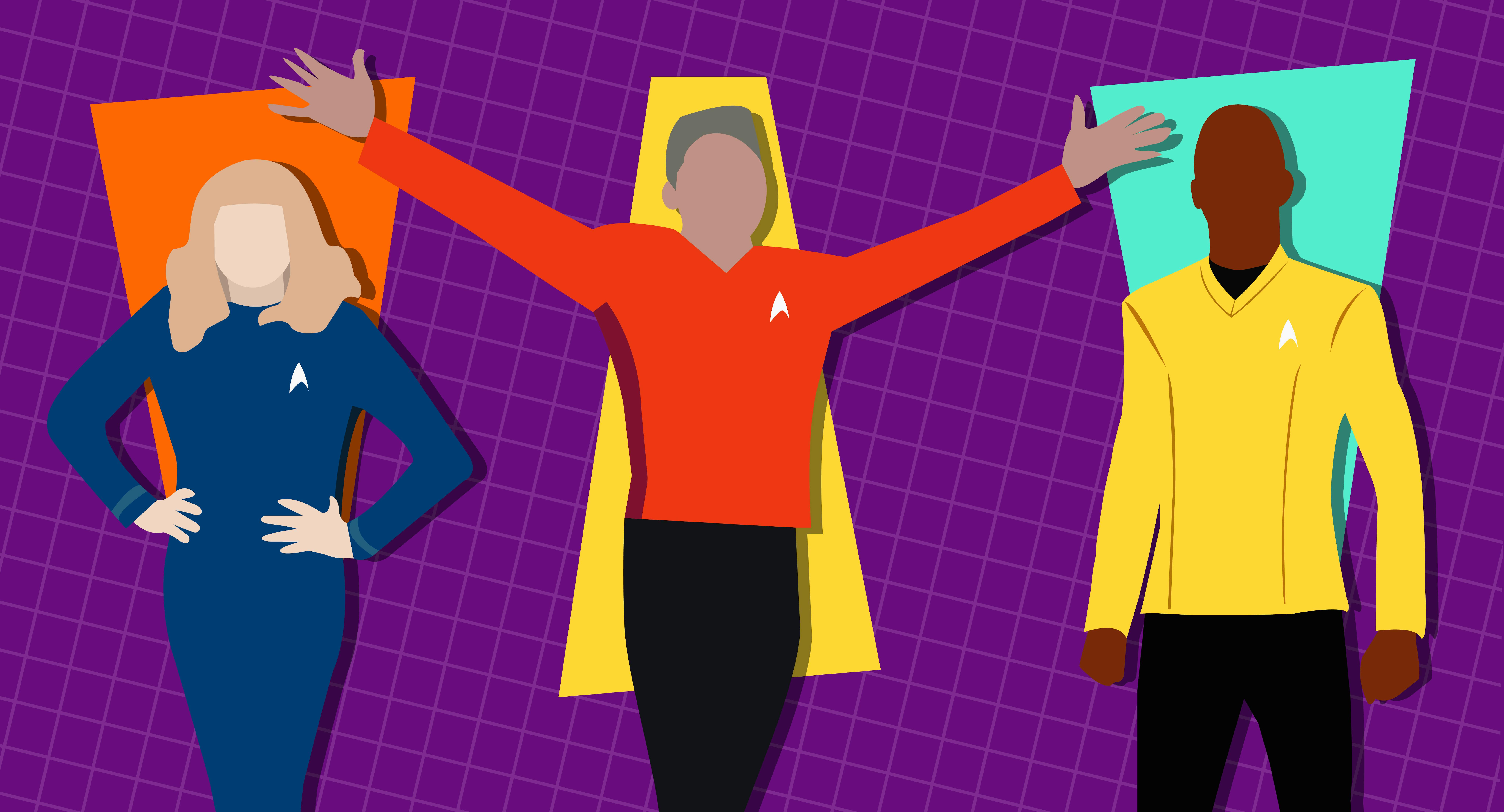
StarTrek.com / Charlotte Tegen
For nearly 60 years, Star Trek has been a beacon of inspiration, giving us a glimpse of a possible future full of optimism and hope where humanity — devoid of poverty and war — will come together to explore the stars.
we're spotlighting the episodes that encompass the Star Trek ethos where our protagonists, in the face of adversity or an alternate path, rise up to unapologetically embrace who they are and/or what they can be. After all, as creator Gene Roddenberry once said, "Infinite Diversity in Infinite Combinations represents a Vulcan belief that beauty, growth, progress — all result from the union of the unlike."
","
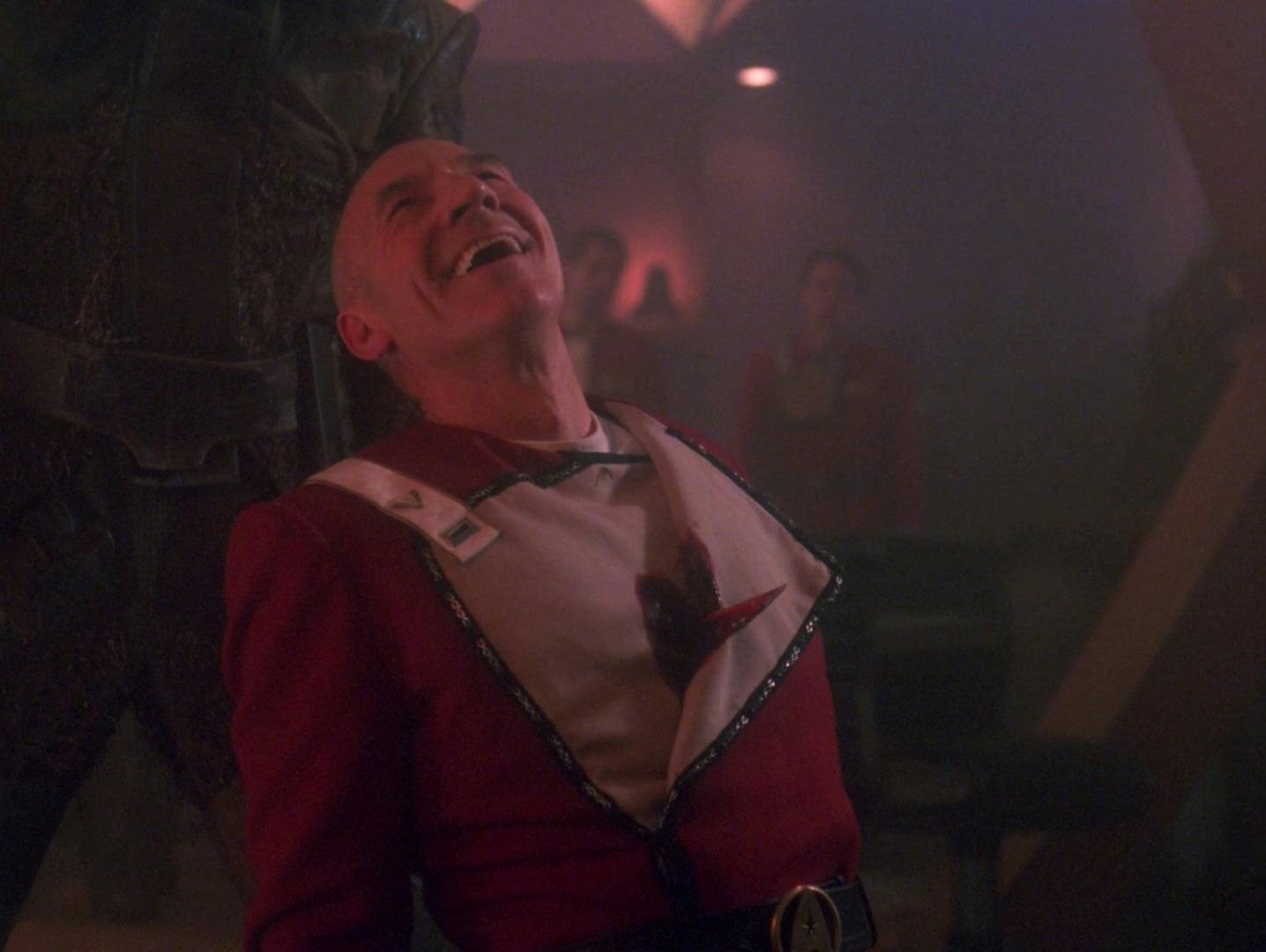
"Tapestry"
StarTrek.com
During an away mission gone awry, Captain Jean-Luc Picard suffers a heart attack following a Lenarian attack. In death, he has the (mis)fortune of being greeted by Q who delivers the news by showing him his artificial heart that gave out, which has the captain admitting he feels guilt for how some things had played out in his life.
Q takes the opportunity to grant his "wish" of righting some wrongs, transporting Picard back to when he was a young lad at the start of his career at the Academy. In order to prevent his artificial heart's failure, he is to avoid the fight with a Nausicaan who stabs him, resulting in the need of an artificial heart in the first place. However, in changing his past, he alters his safe present where upon returning to the Enterprise, he discovers he dons a non-command uniform and is merely an assistant astrophysics officer, with his crew unable to see advancement in his future due to his lack of risks. His 'current' present reflects the series of changes he made in his youth. Picard then begs Q that he'd rather die than live any longer as an average, dreary man. Picard then wakes up in Sickbay in his restored present, grateful that Q gave him the chance to understand why he is the man he is today. While he may not be proud of all his actions of his youth, but it was all essentially to the tapestry of his life.
"," Star Trek: The Next Generation
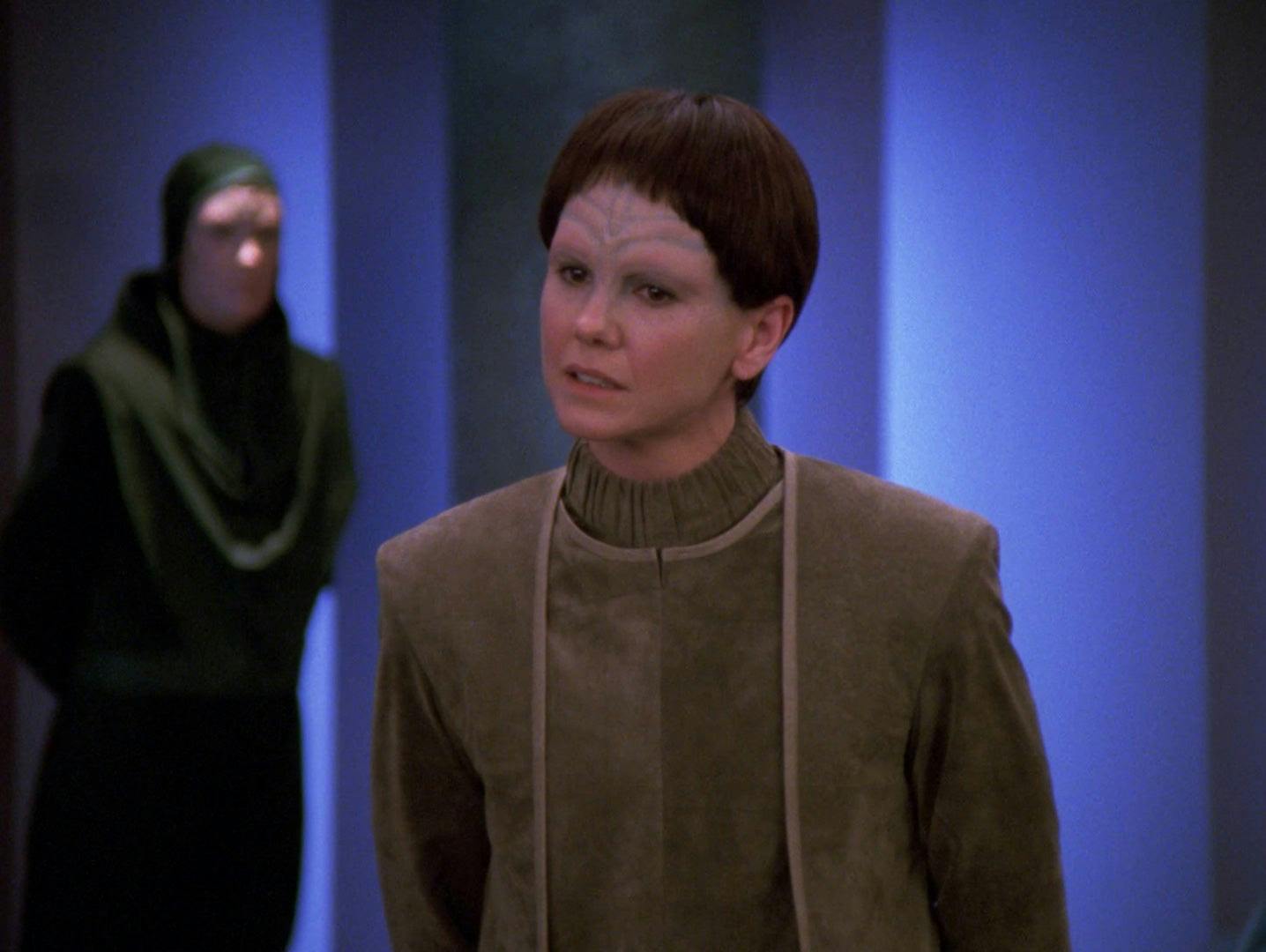
"The Outcast"
StarTrek.com
In this fifth-season episode, Commander Riker works with Soren, a member of the J'naii race, to rescue a missing J'naii shuttlecraft. In their developing relationship, Riker discovers that the J'naii are an androynous society that shuns gender-specific relations. Soren risks her livelihood for not only pursuing a relationship with Riker, but also for identifying as female, as the J'naii views the behavior as criminal perversion.
Soon, Riker learns that Soren has been taken into custody for her relationship with him. At her proceedings, Riker takes full responsibility and fights for Soren's release. Despite knowing the outcome and punishment, Soren stands up to the panel of judges, unable to live a lie any longer. She simply wants to be accepted, and for all who identify with a gender, to be accepted for who they are.
","
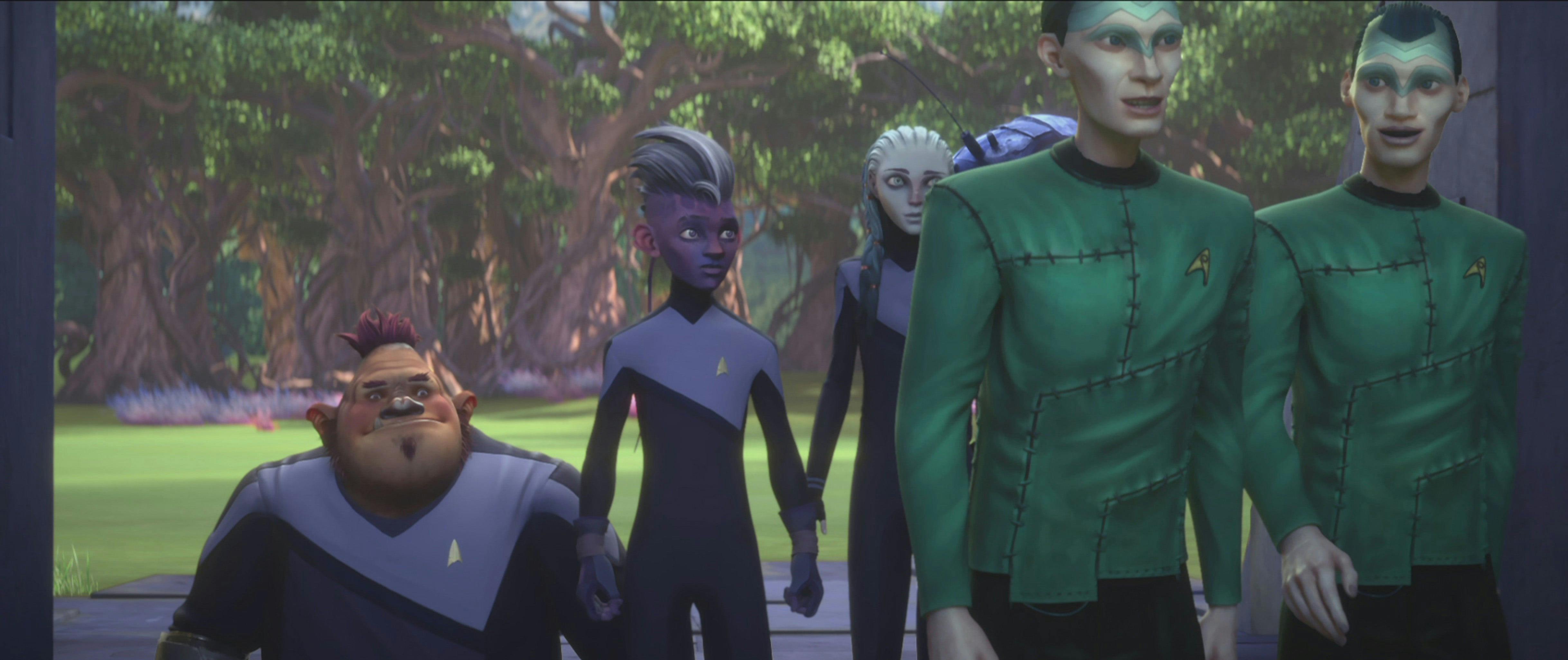
"All the World's a Stage"
StarTrek.com
The Protostar crew answers a distress call from a pre-warp planet. However, upon beaming down to its surface, they discover a humanoid species called the Enderprizian, who fashioned their society around Starfleet after they faced cultural contamination following Ensign Garrovick of the U.S.S. Enterprise's crash landing on their planet in the Galileo shuttlecract. While the Starfleet officer lived among them as he recuperated from his injuries, he taught the Enderprizians about the ideals of Starfleet.
The colony of New Enda-Prize unsettles Dal who wants nothing more than to simply leave the planet. In their reverence of Starfleet, he recognizes they're living a lie and it feels all too familiar. However, he encounters the same affliction of "a curse" the local natives have suffered from. While his crew investigates, Dal has a crisis of faith wondering if he's capable of saving the Enderprizians when he feels like he's masquerading as Starfleet himself. Dr. Boons assures Dal that they're not delusional. He recognizes while they may not be Starfleet, all that matters is they believe in what it stands for — helping Dal realize it's not a ship that makes a person Starfleet.
","
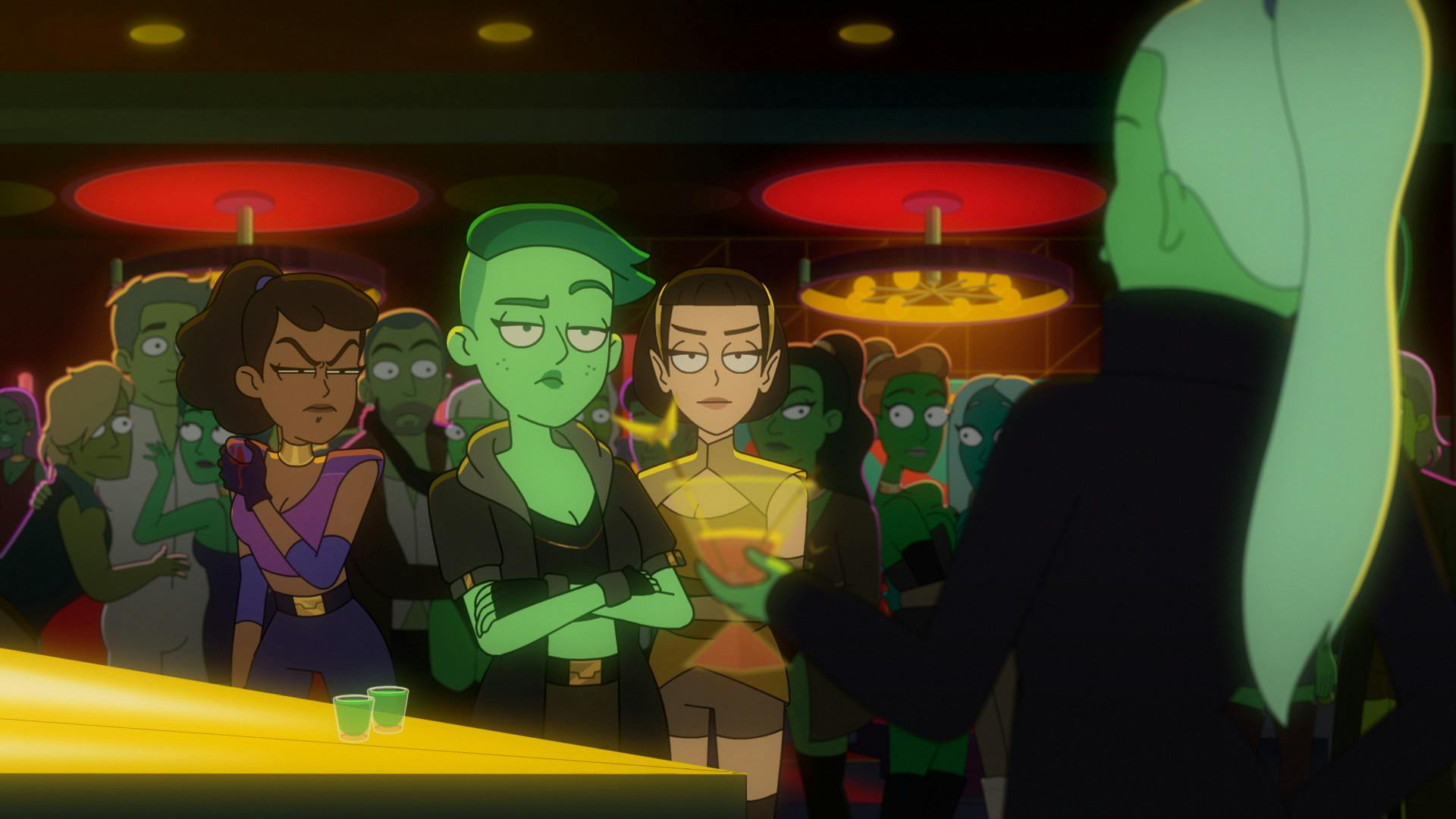
"Something Borrowed, Something Green"
StarTrek.com
In this fourth-season adventure, D'Vana Tendi is forced to return home to Orion to attend her sister D'Erika's wedding. Tendi's homecoming is contentious as she's worked hard to get into the Academy and Starfleet due to the pre-existing stigmas towards Orions, who are often viewed by the Federation as pirates and thieves. As such, her relations with her family (part of the Orion Syndicate) is strained as she separated herself from Orion culture and her past as the Mistress of the Winter Constellations.
Everything is placed on the back burner as Tendi learns her sister D'Erika is kidnapped ahead her wedding forcing her girls' trip with Beckett Mariner and T'Lyn to be an undercover reconnaissance mission. As she easily slips back into her past life, she's uncomfortable and embarrassed with what her friends may think of her "real" self. As it turned out D'Erika's ruse was a ploy to get her sister to return home, and as they violently worked through their issues, both sisters realized they were exactly where they needed to be — D'Vana as a science officer for Starfleet and D'Erika as the new prime of the Tendi family. By "," we start to see hints from Tendi that she doesn't have to choose between her two selves, .
","
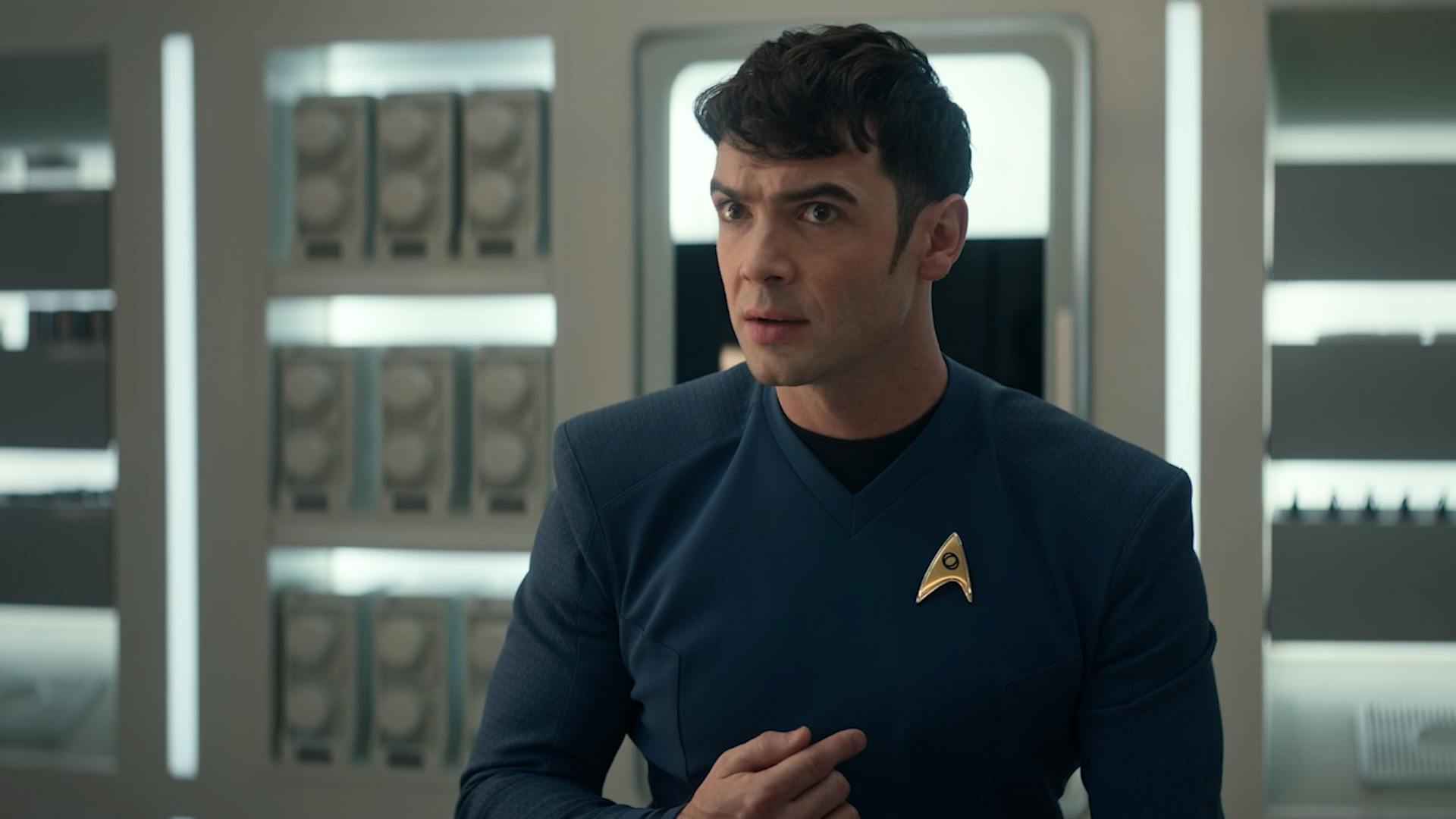
"Charades"
StarTrek.com
A product of two cultures, Spock is put through the ringer following a shuttle accident that results in his Vulcan DNA removed, rendering him fully human, at the most inopportune time — an important ceremonial dinner with his fiancée T'Pring's family. The flood of emotions wreaks havoc, heightening his sense of being "too human" for her and her family, especially as her parents have been direct in their less than impressed views of the union.
T'Pril, during the ritual of awareness, callously tells Spock that he is a disappointment who turned his back on his planet, his people, his family, and their daughter by choosing Starfleet over all the things she's listed. Following the completion of the ceremonial dinner, T'Pril comments his mere adequacy in completing the ritual despite overcoming the faults beyond his control and "handicap," pointedly insulting Spock's mother Amanda Grayson, for diluting his Vulcan nature with mixed heritage. Angered, Spock reveals that he was able to complete the V'Shal as a full human, sticking up for himself and Amanda who he considers one of the most compassionate, resilient, and tolerant people he knows, and regrets taking so long to express this to her. In reflecting on the memory his mother chosen during the mind-meld portion of the ritual, Spock realizes how much she had given up in order for him to be accepted by Vulcan children while she herself was shunned by Vulcan mothers. Following his moment with his mother and argument with T'Pring, Spock realizes he can no longer suppress his feelings.
","
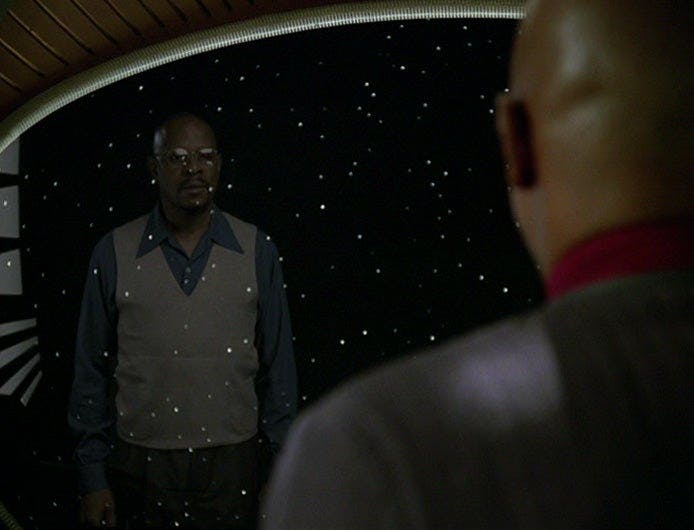
"Far Beyond the Stars"
StarTrek.com
As he questions his place within Starfleet and their momentum in the Dominion War after his friend's ship is destroyed, Sisko experiences a vision from the Prophets of the life of scifi writer Benny Russell. Working at a publisher in 1950s New York City, during a time of civil unrest, Benny plots out a story about Captain Benjamin Sisko and his life aboard Deep Space 9.
As the episode progresses, Benny and Sisko are rattled by continual visions of the other's life, unsure if they're becoming the other. While his colleagues are impressed with his story, his editor refuses to publish it as readers would not accept a Black man as the head of a space station. His father Joseph Sisko who appears as a NYC street corner preacher in Sisko's vision encourages Benny to "Walk with the Prophets, Brother Benny. Write the words that will lead us out of the darkness and onto the path of righteousness."
Benny suffers the indignities of the Civil Rights era in a series of unfortunate events — two malicious police officers (portraying Dukat and Weyoun) kill a neighborhood Black teen (his son Jake Sisko), they also mercilessly beat Benny up, and then the magazine publisher's owner not only pulps that month's issue because of Benny's story but fires him as well. Instead of being discouraged by the dream, Ben tells his father he has decided to fight the good fight by staying with Starfleet and Deep Space 9.
"," Star Trek: Strange New Worlds
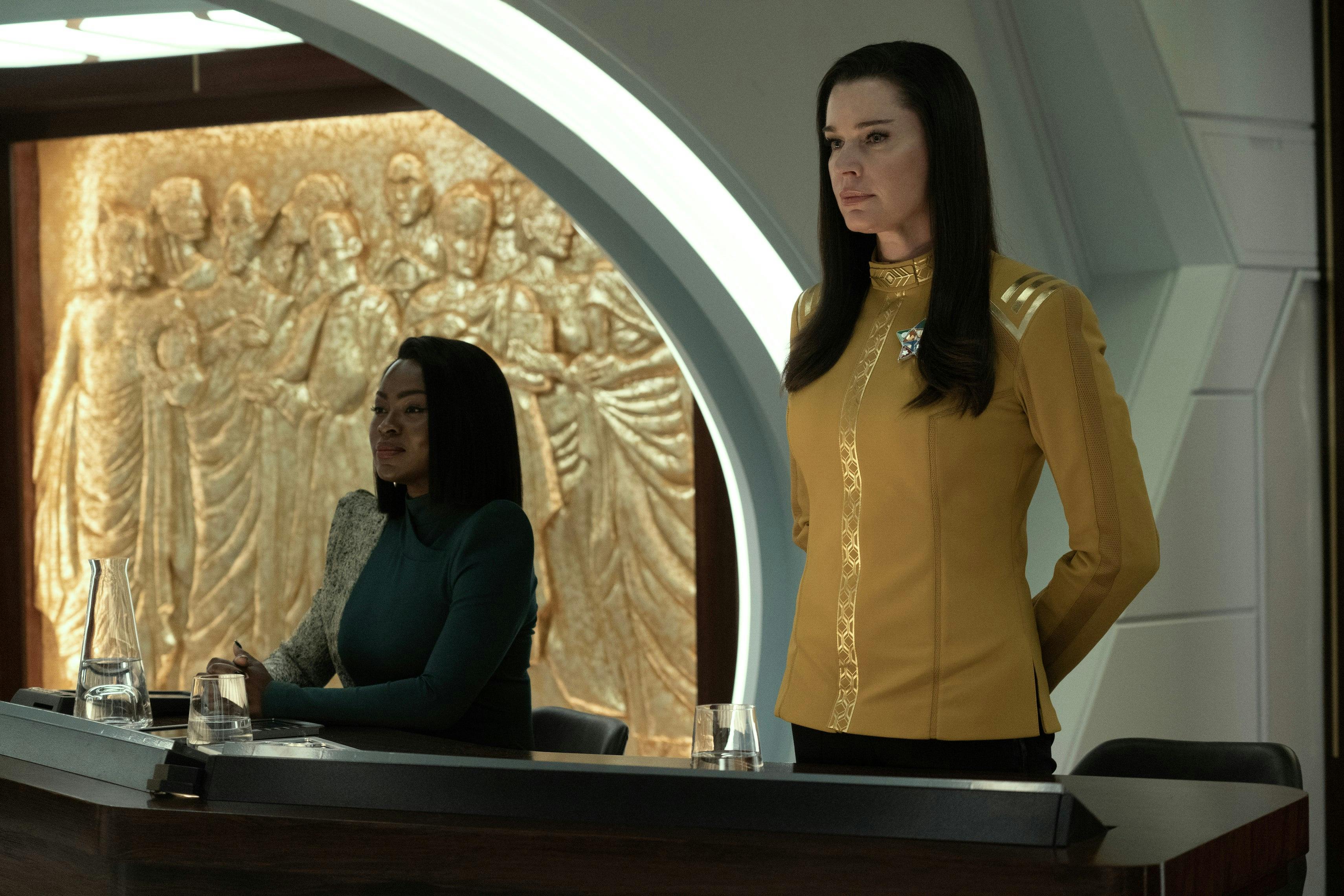
"Ad Astra per Aspera"
StarTrek.com
In this second-season court drama episode, Commander Una Chin-Riley and her closest friends and colleagues are forced to take to the stand in front of a tribunal as the Enterprise's first officer faces court-martial for violating Federation's ban on genetic modifications simply for being an Illyrian, a species who used science and technology to adapt their bodies to the environments and planets they settled on. As such, Illyrians are prohibited from joining the Federation or Starfleet.
Due to her exemplary records, Starfleet offered her a deal that includes dishonorable discharge, no prison time, and ability to be a free citizen in the Federation, in exchange for a guilty plea. Captain Pike reaches out to Counselor Neera Ketoul, an Illyrian, to take on the case if not for her former childhood best friend, then to publicly bring to light the Federation's hypocrisy and to help bring visibility and justice for her other cases. Una turns down the plea deal as she loves her crew and career, as Starfleet was her dream. Ad astra per aspera ("to the stars through hardship"). As it turned out, it was Una herself who turned her into Starfleet. She was unwilling to live another day unauthentically; she was tired of having to hide who she was out of fear. She wanted her friends and loved ones to know her completely, but also for the Federation to better understand Illyrians better. While by episode's end, the law could only rule on her specific case, Una learns about her legacy from Ensign Bradward Boimler in "" when he reveals she was the very reason, in the future, that he joined Starfleet as the very literal poster girl for Starfleet recruitment.





